"We have no plans to bring Xbox Game Pass to PlayStation or Nintendo." Xbox CEO Phil Spencer on console hardware, the future of Activision-Blizzard, and much more
In our exclusive interview with Microsoft Gaming CEO Phil Spencer, we got a glimpse of the future of Xbox, and Microsoft's evolving strategy going forward.
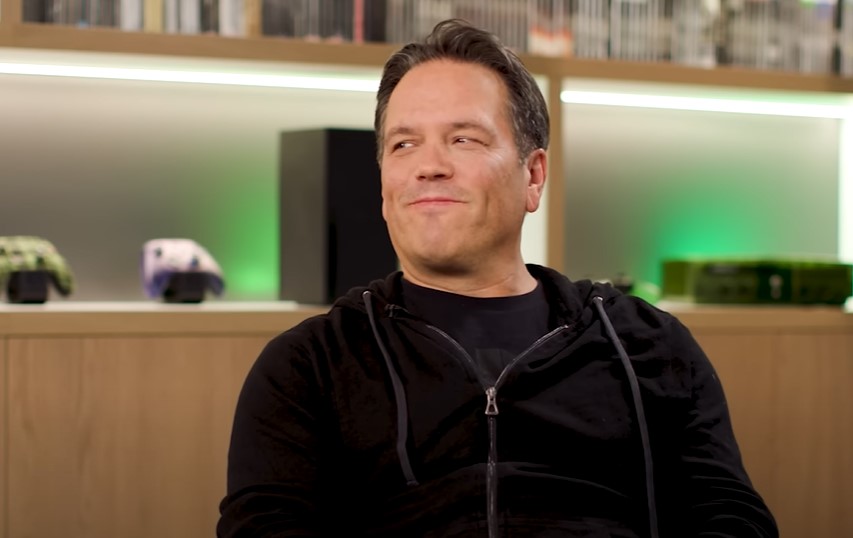
All the latest news, reviews, and guides for Windows and Xbox diehards.
You are now subscribed
Your newsletter sign-up was successful
Microsoft Gaming CEO and Xbox lead Phil Spencer is currently at CCXP 2023 presenting alongside other major entertainment companies at one of Brazil's biggest comics, movies, and gaming conventions. Spencer's attendance at the show caps off one of the busiest years for the Xbox team in years, potentially, as the team jetted all over the world to answer regulators on its massive acquisition of Activision-Blizzard. Spencer and co. also ran events in LA before the summer, attended Gamescom in Germany, spoke on stage at Blizzcon 2023 in Anaheim. Spencer even appeared at the Final Fantasy Fan Festival as part of a renewed partnership with Square Enix. This kind of work schedule might've been the death of me, but Spencer was infectiously brimming with energy, fully fired up during my interview with him yesterday.
The Xbox platform is under constant scrutiny from every angle. Part of it is because of how differently Microsoft does things, but part of it is definitely self-inflicted. Microsoft is known for confusing messaging, and creating a perception of inconsistent commitments. This perhaps accentuates the difficulty of running what has become, arguably, the most diverse gaming portfolio in the history of the industry. A Tencent-like mobile gaming division, a traditional PlayStation-like console gaming department, an expanding PC gaming footprint, and new paradigms like cloud gaming, and gaming subscription services — how does Microsoft manage all of these diverse and, occasionally, conflicting interests? And what does the future of Xbox look like?
We spoke to Phil Spencer to get answers to some of these questions, as we close out 2023, and move into what is looking like a bright 2024 for the Microsoft Gaming operation.
On Xbox Game Pass "coming to other platforms," innovation in future Xbox console hardware, and keeping Xbox fans excited
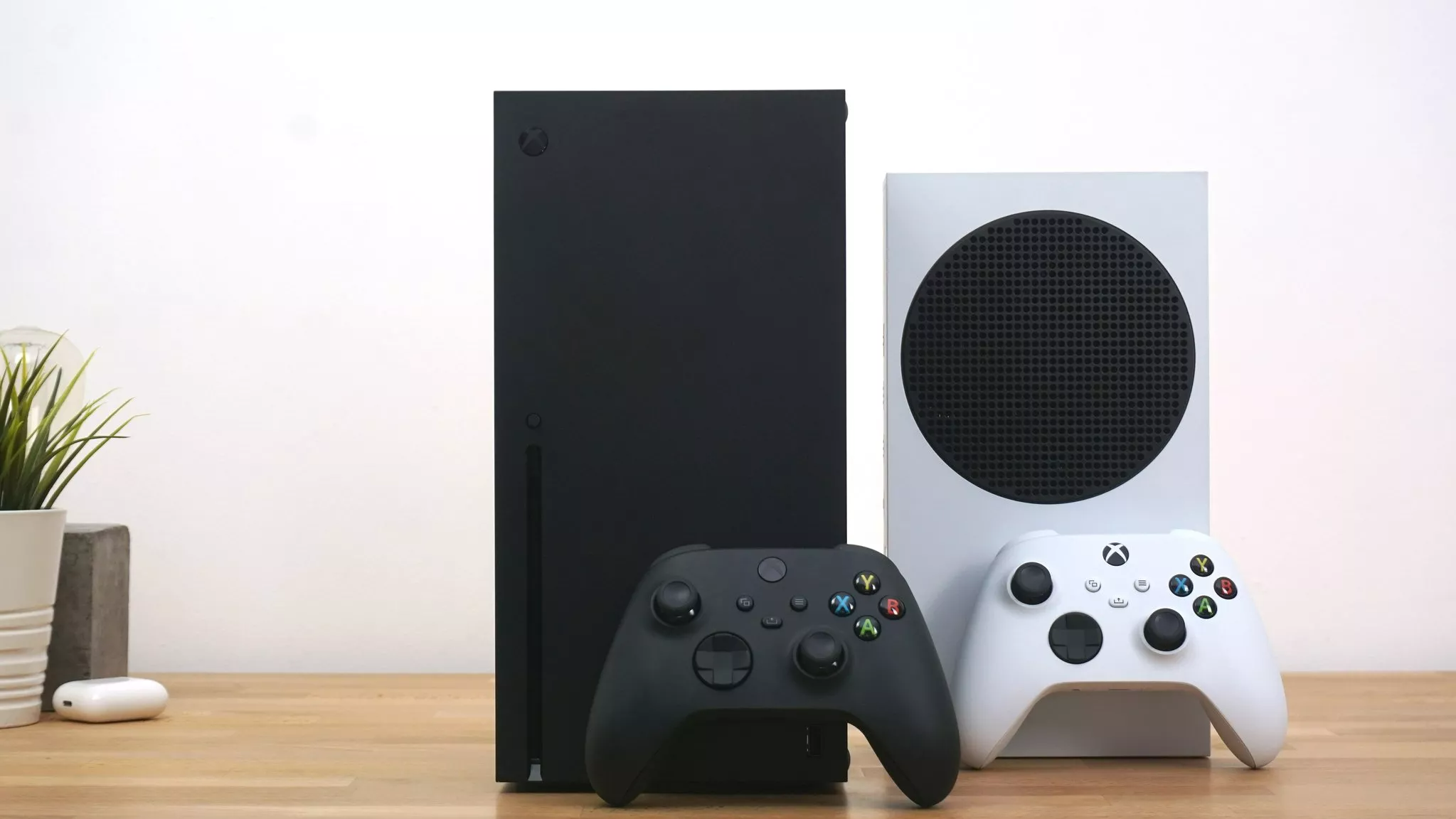
I asked Phil Spencer about Xbox CFO Tim Stuart's recent comments regarding Xbox Game Pass. Stuart, in a presentation with Wells Fargo, said that Microsoft's aim was to bring Xbox Game Pass to any screen that can play games, including Nintendo and PlayStation. Many Xbox fans took that to indicate that Microsoft is preparing for an industry where Xbox hardware no longer exists, since Xbox Game Pass and its exclusives are a primary value driver for Xbox Series X, Xbox Series S, and Xbox One hardware.
"I'll start by saying we have no plans to bring Game Pass to PlayStation or Nintendo. It's not in our plans. But I think you hit on the right point of 'what it means to own an Xbox.' The thing I want to be focused on is how do we continue to innovate for people who've made the commitment to our hardware platform. And how do we continue to make sure that they feel great about their investment in what we've built.
I'm obviously going to have my own point of view on our hardware. But I think our hardware teams did a great job with the Xbox Series X and Xbox Series S this generation, giving value and performance in the hardware line. When I think about investments in things like Game Pass, and Xbox Cloud Gaming, cross play, and cross save, and ID@Xbox, all of these things — I want us to continue to innovate, so people on our console feel like we're making investments in console that matches their commitment they're making to us.
Game Pass was one of the things you know that over the last five years we built, and we continue to grow, it's on PC, it's on cloud. It's an important part of the Xbox console identity. And I think it will continue to be that. And we will continue to look at future ways for us to innovate across our game portfolio and our platform."
All the latest news, reviews, and guides for Windows and Xbox diehards.
On the subject of innovation, I asked Spencer what that innovation might look like for Xbox hardware in the future. We've seen the rise of PC gaming handhelds like Steam Deck and the ASUS ROG Ally, we've seen Microsoft experiment with things like the Xbox Keystone cloud gaming console, which sadly never launched.
I asked Spencer if Microsoft has a plan for the "innovation" he mentioned, and to describe what said innovations might look like.
"We absolutely do. Just last month, we elevated Sarah Bond to be the president of Xbox, the hardware team is in her organisation, the platform and services team are in her organisation. We made that organisational move specifically to ensure we had a unified focus for our innovation roadmap across hardware and services. That includes the developer platform for Xbox consoles as well. That's about innovation we're doing within our teams, but we'll have more to talk about in terms of what we're doing in the hardware space, and in the service space — there's a lot of there's a lot of great work for us to do. We're always listening.
On cloud gaming, one thing that has been interesting — you've watched us. Early on, we talked about Xbox Cloud as a way to get onto mobile gaming. And globally, there are a lot of people who play cloud gaming on mobile today. But in a place like the US, the way people use cloud primarily is on Xbox consoles. They use it to look at games and to browse games that they might want to download to play through Xbox Game Pass, or even purchase outright. That's sparked innovations that we didn't plan. When we watch what customers are doing, and listen to the feedback that they're giving us, we think about as other things we can do with Xbox Cloud, and for the Xbox console experience.
There's a roadmap of those things coming as well. There's a hardware roadmap, there's a service roadmap, maybe there's even a roadmap for improvements to Xbox achievements, which I know is something that you and many others care about.
We need to make sure we're exposing roadmap to our customers to keep them excited. We know that our customers want to know that, as Xbox continues to grow, that we still have a commitment to them. We want our Xbox core customers that have been with us all along to feel respected."
On the topic of gaming handhelds, I noted the growth of the ASUS ROG Ally and devices like the Lenovo Legion Go, which are bringing PC Game Pass and Steam games natively in portable scenarios broadly for the first time, outside of some really expensive alternatives in previous years. We talked about Xbox Play Anywhere, which lets you play Xbox console games on your PC with cross save, and cross entitlement. I referenced the fact the Xbox app on Windows 11 recently gained a compact mode, designed for handhelds, and also asked what Microsoft's broader roadmap looks like for adapting Windows 11 (and maybe Windows 12?) for this emerging device category.
"I appreciate the mention of the Xbox app, and the work Ashley McKissick and the team put together with the launch with compact mode, to make it more usable on those devices. I'm travelling right now, I have my Lenovo Legion Go with me, which is fantastic. I think about those handheld PCs, almost extensions of my Xbox console.
We've been pushing for cross play, cross save, cross progression, for so long. To see when I pick up a game, that my progress on my console shows up on this handheld in a native way — it's not just cloud streaming. And I can play on the airplane and or play when I'm disconnected. I think that's vitally important to where we're trying to go.
I think a lot about product entitlement, and we have Xbox Play Anywhere. Xbox Play Anywhere has been a long term part of our strategy, though I don't think we've made as much progress as maybe we could have over the years that's been out. But as I see these handheld PCs come along, I think things like playing anywhere, and my ability to keep my games library with me and allowing me to play those on different devices, including cloud streamed at some point. We're looking at the ability to allow you to stream the games that you own."
On Xbox games you own in Xbox Cloud Gaming, Xbox Family Plan, and benefits for game developers
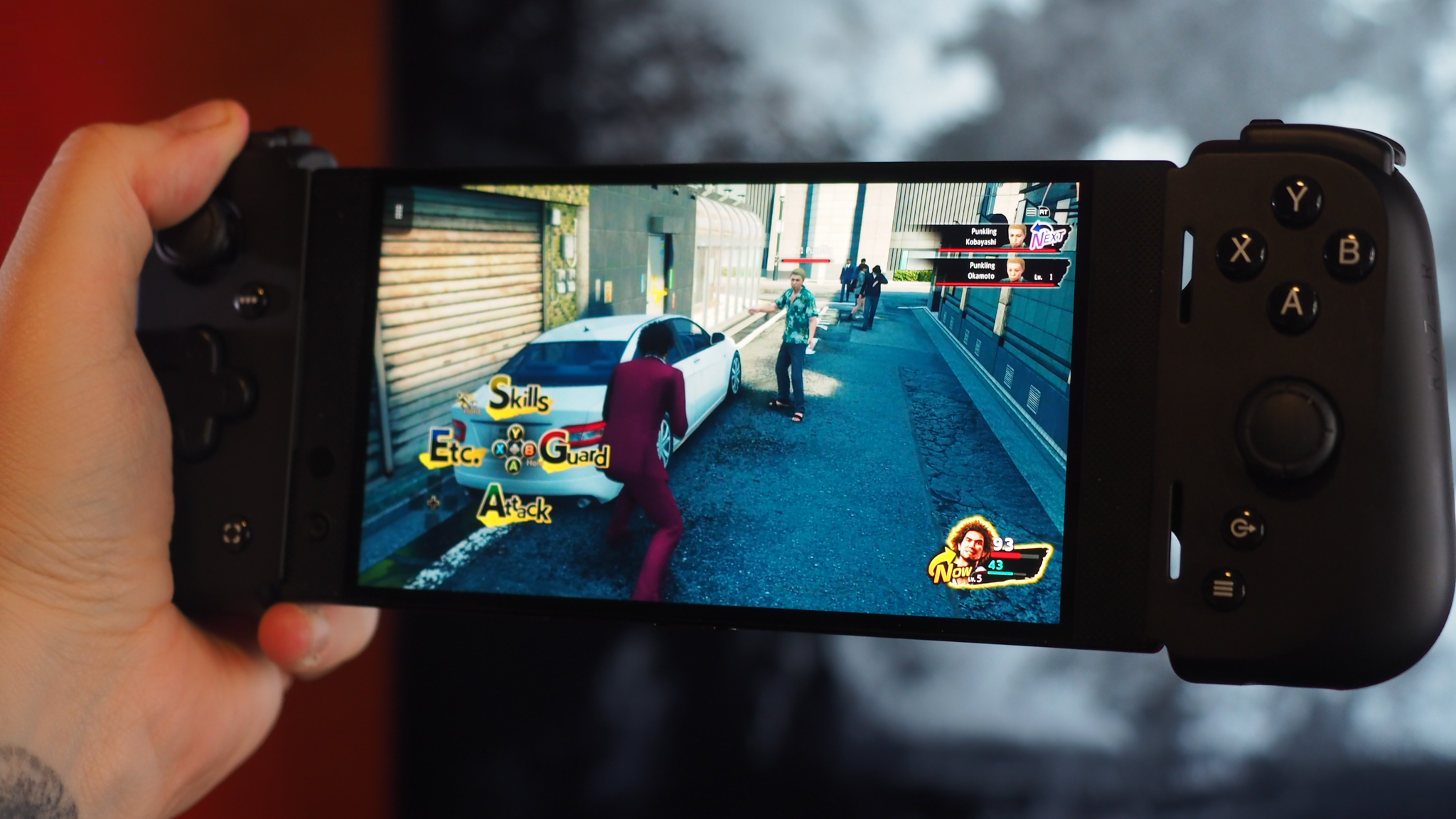
Continuing from discussions about the future of the Xbox platform, I asked Phil Spencer to elaborate on the situation for Xbox Cloud Gaming. Over the summer, Xbox Cloud Gaming became subject to lengthy queue times in some regions, particularly around the launch of Starfield.
"We're in Brazil right now and, right now, I have a lot of 'cloud' in my head. Brazil is such a big Xbox Cloud Gaming market for us, and a big Game Pass market for us. Brazil is our second-biggest PC Game Pass market right now. We did our partnership with the Samsung app for Samsung TVs, and this has been our biggest year for people using Xbox Game Pass on TV. We're seeing a growing use of cloud, in Latin America but also globally. We had a pause on Xbox Cloud hardware deployment, which led to queue times around Starfield's launch. We've begun to start deploying more blades again to meet that growing demand. We're also looking about what it means to stream PC games, we think that's an important part of our future in that space. I'm very bullish on where we can go with cloud, but it doesn't diminish the local run time experience that we want to have on Xbox consoles and Windows PCs. Every one of those games people want to stream, people also want to play locally. We have to build the tools for developers in order to build both.
These are all things where our gamers are embracing different devices to play their library of games — to take their gaming experiences with them. I want Xbox to be a brand, that shows up on our Xbox app, but also while making sure our games are compatible with Steam Deck, ROG Ally, Legion Go, and while making sure they are great on our Xbox console line up. Yes, I think it does mean that our focus is more broad than it has been. We're significantly bigger than when Xbox started 20 years ago. It's our job to keep up with all that."
On the topic of product entitlement, I asked Phil Spencer for an update on the Xbox Family Plan, which briefly launched in a test period in Ireland and Colombia, but had since vanished.
"Yeah, there is a roadmap for the Xbox Family Plan. We put it in market to learn. It's important for us, and for everybody, to understand that Game Pass is mainly driven by our partners' content. Yes, we put our first party games in day and date, and I think that's an important part of our equation. But we also have to continue to build a service that works for creators heading into Xbox Game Pass as well. So we do some tests, we look at what happens in the market, we share that data with our partners.
We need to come up with a value proposition for creators and for players, to make it a win-win. And we've been able to do that with how Game Pass is structured. We'll continue to look at ways to bring value to more customers, while continuing to make it a great service for creators."
On Activision-Blizzard, dormant franchises, and the roadmap for tapping into nostalgic IP
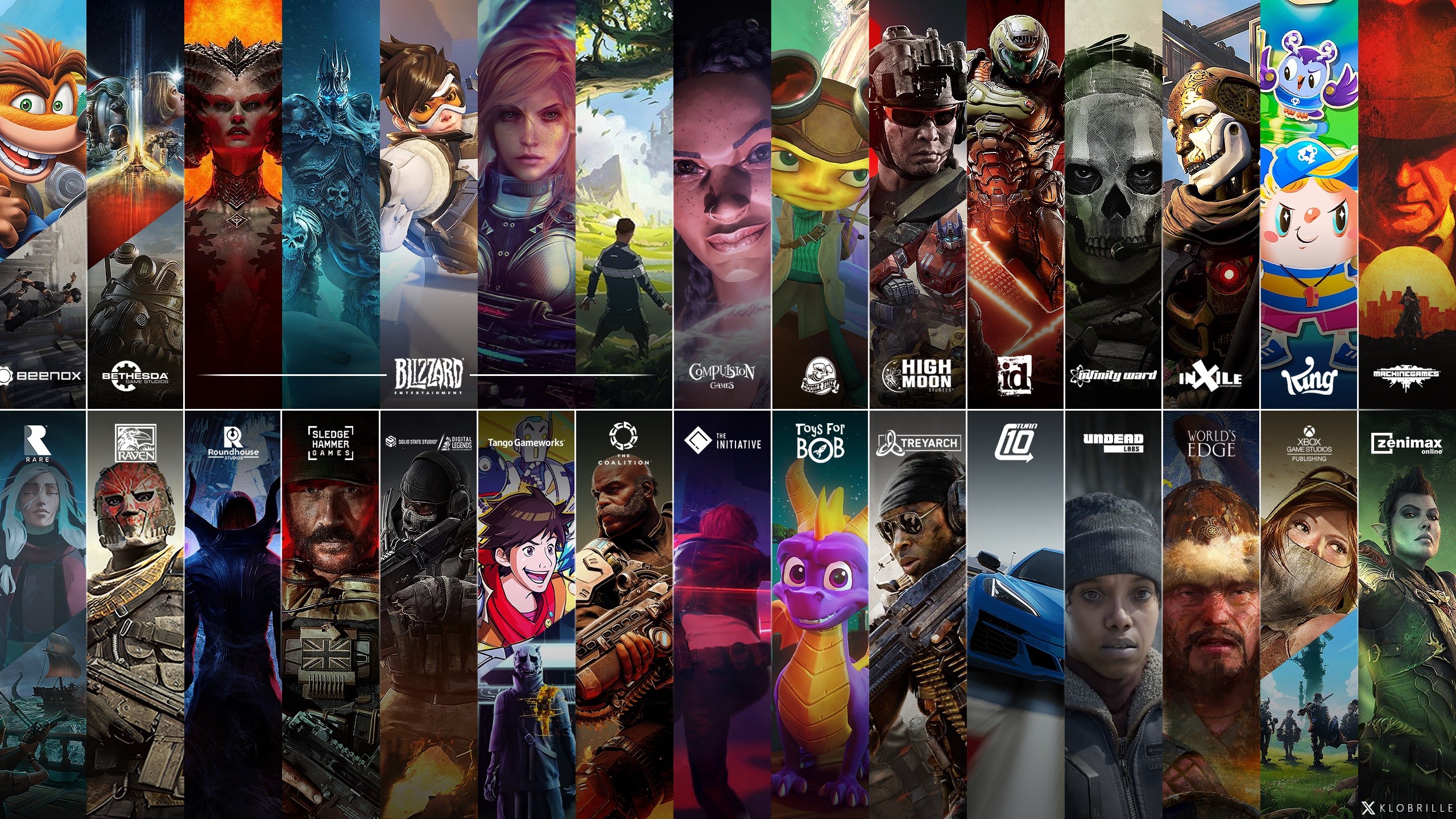
We also discussed Activision-Blizzard, and the future of the games therein. I reminded Phil Spencer about some of the previous teases we heard during the press tours and regulatory comments, mentions of things like Guitar Hero, Skylanders, StarCraft, and other classic Activision-Blizzard franchises that have become dormant.
Were those teases just exactly that, or is there a real possibility some of this stuff could return? If so, what are the logistics of that? And why is Xbox able to revive some of these more "niche" games like Age of Empires, Killer Instinct, and potentially StarCraft while Activision-Blizzard seemed unwilling to do so? What makes Xbox's strategy different here? Here's what Phil Spencer had to say.
"I probably can't do the compare and contrast that well, since I wasn't in the rooms at Activision when they were making some of the decisions about what to focus on. I can speak to us. It goes back to some of our language on Game Pass in the very beginning. We have a service that is financially viable, meaning it makes money, in Game Pass. We've put a lot of money into the market, over a billion dollars a year supporting third-party games coming into Game Pass. What we see in Game Pass is a service that supports all kinds of games, from the biggest games, to the unknown indie games that you didn't know you would love until you played it. If you're an individual publisher, you really have to think about 'how do you get everybody playing my game.' I think a lot of the publishers are naturally drawn to making games that are big hit games, as big as possible. We want to do that as well, of course. But because we have a platform, and we have a subscription service, having people play more and stay engaged on the platform, frankly, regardless of the types of games they're playing, is a very viable part of our strategy.
When you look at things we've done over the past 12 months. If you look at things like Pentiment, Hi-Fi Rush, long-term investment in games like Grounded, all of these games have had real success for us in our subscription and in our platform. The diversity of business models allows us to invest in different kinds of content and still have financial success with that content. When we look at the back catalog of games from Bethesda, we get really excited. We look at the back catalog from Activision and Blizzard, we get really excited about the things we can do. It's early days, so we need to be talking to that teams that are fully staffed and working on things already. It's not like 'hey, there's a spare team' that you can just go and put on something. You need to make sure those teams have passion for what they want to go work on. I will say that the diversity in business models that we have in Microsoft Gaming really lets us supports different kinds of games, different sizes of games, and not every game we build has to be the kind of game that takes up all of your time."
Towards the end of the interview, I asked for some examples of the types of games we could eventually see revived, or even cross to new platforms. I asked if we could see World of Warcraft, StarCraft, or Heroes of the Storm eventually hit Xbox consoles. I asked how Microsoft would go about meeting fan's desires for the back catalogues, while also keeping the teams at Activision, Bethesda, or Blizzard working on things they're potentially presently passionate about.
"You did a good job at laying out some of the examples from the past. Thinking about Age of Empires, we're on the 10th anniversary edition of Killer Instinct, which is another nice example to think about. There has to be passion in the team behind the projects. That doesn't mean that the team has to be the original team, every time. I'm not one — and maybe this is just my approach — I'm not one to come in and take a franchise from a team and remove them from the discussion or development process on how something new gets built. I think the original creators, the culture — frankly, some of the lessons we've learned from past experiences here are very important. You've seen from our history that we haven't touched every franchise that people would love us to touch — Banjo fans, I hear you. But it is true that, when we find the right team, and the right opportunity, I love going back to revisit stories and characters that we've seen previously.
In the case of Blizzard games specifically, really what I'd want to do is work with Blizzard's leadership to see where they have passion. I say all this, but I'm not at all suggesting that Blizzard doesn't have passion for reviving franchises too, I know that from my visits to the team. They absolutely have the passion in this area. There's a lot of excitement for possibilities that we can all do together. But also, I want our fans and customers to know that I don't bring up games just to tease to no end ... if people have watched how we've teased things in the past. There's usually some kind of reconciliation of those hints later on ... I'm not one to try and lead people on. It might not happen on the timeline that people would love, but usually when I tease, there's something there."
A huge thanks to Phil Spencer and the Microsoft team for joining us
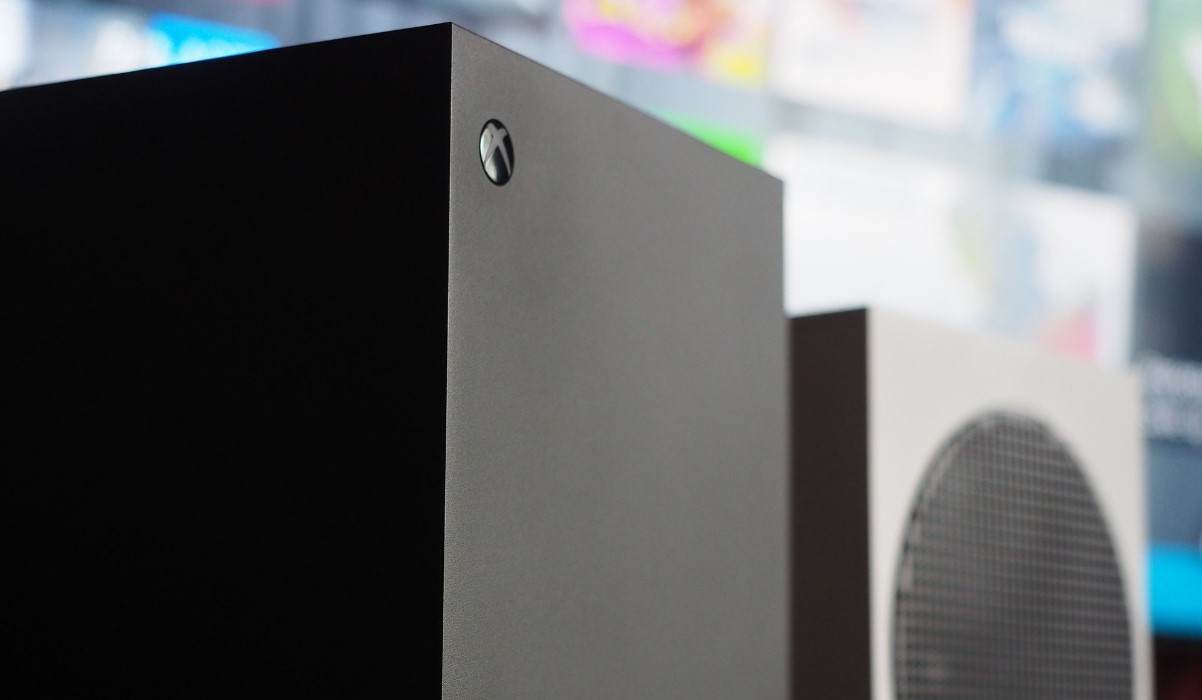
This interview began as a request for comment for Microsoft Gaming CFO Tim Stuart's recent statements about the future of Xbox. Stuart was speaking to potential investors about what Xbox's north star goals are, and in it, created a bit of a furor on social media about Xbox's broader goals and direction. Where does Xbox console hardware, and its traditional customer base, fit into this new Microsoft Gaming division? We now have PC gaming, huge mobile titles, and successful service games — all the types of things that make Tencent and similar companies successful without the complexity and overheads of dealing with hardware. Yet, I think what we'll see in the coming years that, much like Microsoft as a whole, business model diversity and plurality will be its strength.
Spencer's comments about potentially "niche" games like Killer Instinct and Age of Empires contributing to the overall success of Xbox Game Pass was incredibly encouraging for me. It kind of defies the Netflix model, since a user may subscribe for one show, binge the whole thing, and quit within a week. That certainly may be true for some Game Pass titles as well. But at the same time, there may be thousands subscribing to continue playing Age of Empires for hundreds, maybe even thousands of hours. You can't really do that with a TV show. Individual games will have a longer shelf life than a movie, while also feeding users to smaller games, and shorter stories on the side, while also supporting developers with cash flow in the process. I've subscribed to World of Warcraft for 19 years, and that only gets me a single game.
While the Xbox platform may evolve over time, it sounds to me like, definitively, Xbox is here to stay. Tied together by Game Pass, every angle of its diverse business feeds and supports, and subsidized each other, rather than conflicts and competes.
Here's to the future. And happy holidays.

Jez Corden is the Executive Editor at Windows Central, focusing primarily on all things Xbox and gaming. Jez is known for breaking exclusive news and analysis as relates to the Microsoft ecosystem — while being powered by tea. Follow on X.com/JezCorden and tune in to the XB2 Podcast, all about, you guessed it, Xbox!
